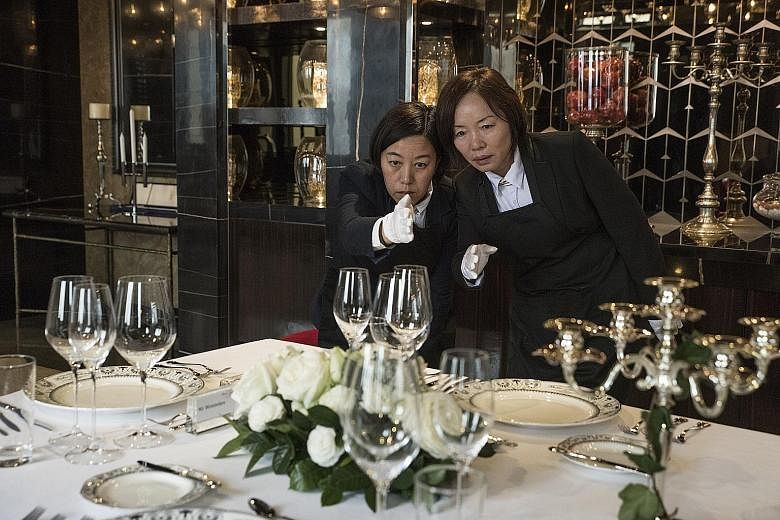CHENGDU • The late Chinese communist leader Mao Zedong once said that a revolution was not a dinner party. But, with the communist revolution turning into opulent capitalism, China's rich are making sure the dinner party settings are immaculate and the wine is poured just right.
Inspired, in part, by the Downton Abbey television drama, the country's once raw and raucous tycoons are aspiring to old-school decorum, fuelling demand for the services of home-grown butlers trained in the ways of a British manor.
"What they would like to say to their friends is 'Look, I have a butler, an English-style butler in my home' to show how wealthy they are," said Mr Neal Yeh, a Chinese-born Briton living in Beijing, who for more than a decade has helped train and find jobs for butlers.
"The country now with the biggest trend in butlers is China," said Mr Yeh, whose English accent would be at home on Downton Abbey, the television series about a blue-blood family in England, which was avidly watched in China.
Butler training schools and agencies have been doing business in China for more than a decade, but the number of recruits has grown sharply in recent years, according to those in the business. Most are Chinese and many are women. The International Butler Academy China opened in 2014 in Chengdu, a haze-covered city in south-west China, and offers a six-week boot camp on dinner service, managing homes and other minutiae of high living.
"The Chinese are vacationing more now than ever in history, and so they're being exposed to the West more and more," said Mr Christopher Noble, an American trainer at the academy, who previously ran bars in Cleveland. "But Chinese people see that, experience top-class personal service abroad, and they want to experience it here."
A boom in butler service might seem incongruous as President Xi Jinping campaigns zealously against corruption and extravagance, and an economic slowdown undercuts lavish spending.
But, China's rich continue amassing ever greater fortunes and want what they see as the trappings of respectable refinement. Even under Mr Xi, butlers are finding growing work as symbols of good taste, according to people in the business.
"You read about an economic slowdown, but China's wealth is still growing," said butler Luo Jinhuan, who learnt the job in Holland.
"Old money has passed from one generation to the next. But the new money doesn't have the same quality. You need to help them improve."
Many student butlers said they had watched and re-watched Downton Abbey as an instruction video on the self-effacing unflappability of domestic service.
"I began to grasp this profession of butlers only after watching Downton Abbey," said Ms Xu Shitao, a 34-year-old Beijing native studying at the Chengdu academy.
"I think that in the future this profession will be quite popular and will have a market."
But Ms Xu and her classmates have found that, in reality, being a butler is strenuous work.
On a recent morning, they practised for hours, learning to serve wine and water the proper way. Again and again, the class of eight clasped a wine bottle near its bottom and stepped forward in unison around a dinner table to dispense just enough wine to reach the widest part of a wine glass.
Not a drop was to splash on the tablecloth or, heaven forbid, a guest.
After they graduate, many hope to attach themselves to China's growing number of super rich. In return, they may earn monthly wages of US$2,800 (S$3,990) or much higher as personal butlers, depending on experience and luck - more than for many service jobs.
"You have to get the details right to do your job right," said 22-year-old Yang Linjun, a student in the class. "Your arms get sore and your hands hurt, but this is a lifestyle."
NYTIMES

